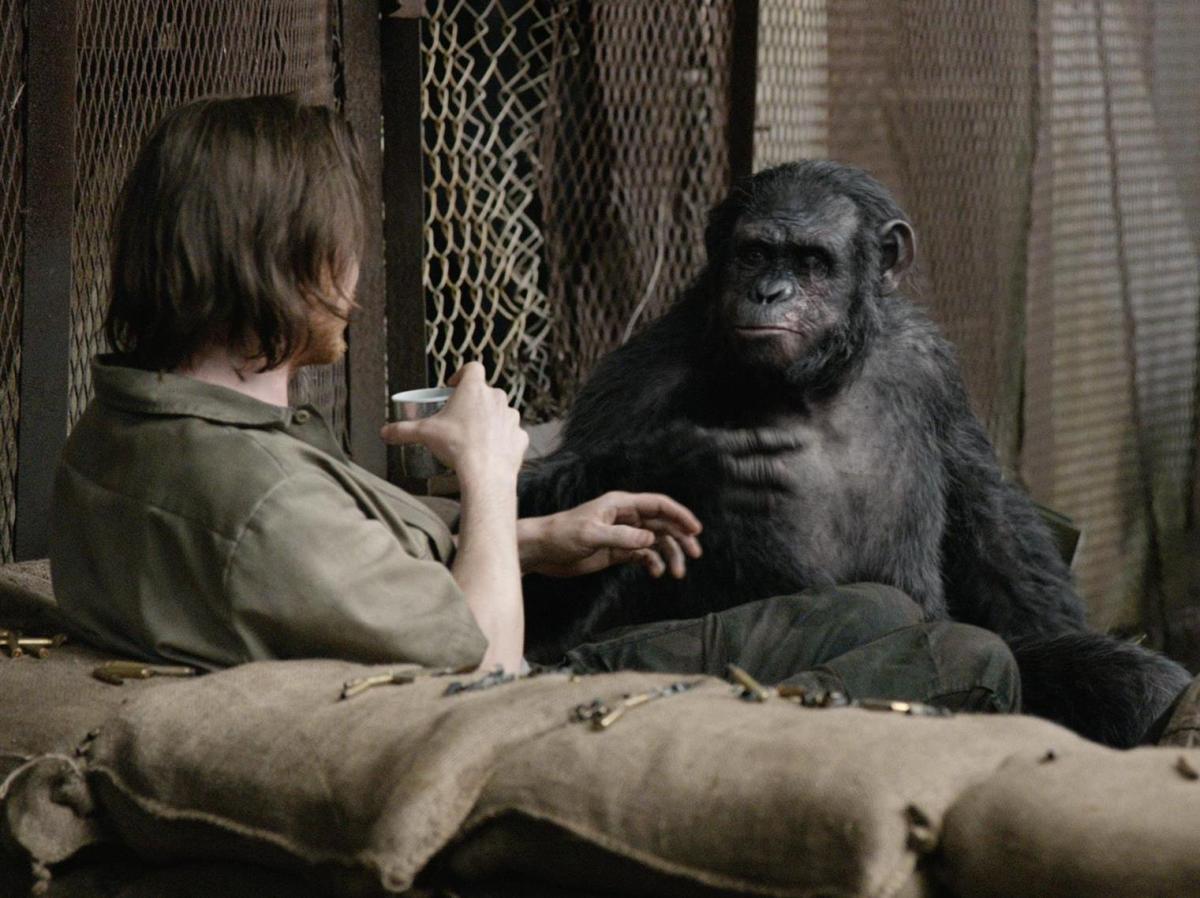Hollywood won’t take its paws off of the Planet of the Apes film franchise, the 1968 adaptation of Pierre Boulle’s novel La Planète des singes sparking seven other films and two television instalments to date. And yet, while some outings in the saga have justified the repetition of the colourful terms used in the series’ most famous line – damn, dirty and stinking – the current path has ample potential. Sentimentality swells in the latest endeavour to engender a battle between two types of mammals as an allegory for most of humanity’s ills, but so does insight, involvement and intelligence.
Dawn of the Planet of the Apes picks up ten years after its immediate predecessor, 2011’s Rise of the Planet of the Apes. The virus that increased the abilities of the titular creatures in that film, giving birth to reluctant ape revolutionary Caesar (Andy Serkis, The Hobbit: An Unexpected Journey), is now responsible for wiping out the bulk of mankind. In the woods surrounding San Francisco, Caesar commands an evolved society of simians attempting to forge an independent existence. When a group of human survivors come looking to restore a dam to secure their own survival, their shock at the advanced state of the primates soon turns to a tussle over turf between species.
Eschewing the scientific slant of the last film in everything but context, Dawn of the Planet of the Apes is a war movie, plain and simple. Hope and hostility ripples through both sides, as help is offered yet trust proves fleeting. Some – such as the kindly Malcolm (Jason Clarke, White House Down), his teenage son Alexander (Kodi Smit-McPhee, Romeo & Juliet), and medically trained Ellie (Keri Russell, Austenland) – can see the path to a peaceful accord, an outlook shared by Caesar. Others – bloodthirsty Dreyfus (Gary Oldman, RoboCop) and trigger-happy Carver (Kirk Acevedo, TV’s Fringe) – agitate for aggression, as does angry bonobo chimpanzee Koba (Toby Kebbell, The Counselor).
Power sits at the heart of a screenplay first crafted by returning scribes Rick Jaffa and Amanda Silver (The Relic), and then rewritten by Mark Bomback (The Wolverine), a concept so obvious that the script embraces it in several guises. With the film’s continuing prequel status established and the ultimate story arc known, such battles may be devoid of surprises but retain tension. Accordingly, Dawn of the Planet of the Apes finds intrigue in telling the why and how of the tale over the what. Neither are narratively complex even with obvious political overtones and too-actively elicited emotions, yet still remain suspenseful in director Matt Reeves’ (Let Me In) constantly surging staging, whether clashing over access to energy, bearing the brunt of taking arms, or delving into the ways in which factions form, solidify, and splinter.
Key in the many machinations are the characters, though the feature’s populous nature merely masks its status as little more than a two-hander. Caesar is placed front and centre, thoughtful and fleshed out in a way no one else, man or ape, enjoys; Malcolm, with his mirrored division of allegiance between his own kind, his family and doing the right thing, is his closest counterpart. That Serkis receives top billing, as he rightfully should as the star of the show under the computer-generated imagery, further reflects Caesar’s poignant prominence, even with able support from Kebbell’s one-note ape antagonist. Clarke’s quiet, convincing display of fortitude aside, the representatives of humanity are thinly sketched at best, mostly superfluous and used to generate sympathy.
Of course, alongside Serkis it is the behind-the-scenes crew that deserves credit for turning an effects-driven effort into an engaging combination of commentary and spectacle that betters its forerunner. An early forest sequence introducing the new ape world order elicits awe in its movement, scale and technical wizardry, appreciation only increasing when crucial details are revealed, subtle callbacks to earlier films are made, and the thematic stakes are raised. In a surrounding world forever bleak in cinematographer Michael Seresin’s (All Good Things) grey gaze, and fittingly post-apocalyptic in its ruinous, 12 Monkeys-like urban rendering, Dawn of the Planet of the Apes offers a textured tapestry beyond the bounds of its franchise confines. Perhaps the evident chasm between the many excellent and few average elements within it is just another overt example of its social parable; it is in the middle of two extremes that the movie and its message resound and reside.
Rating: 3 ½ out of 5 stars
Dawn of the Planet of the Apes
Director: Matt Reeves
USA, 2014, 130 mins
Release date: July 9
Distributor: Fox
Rated: M
Actors:
Director:
Format:
Country:
Release:





